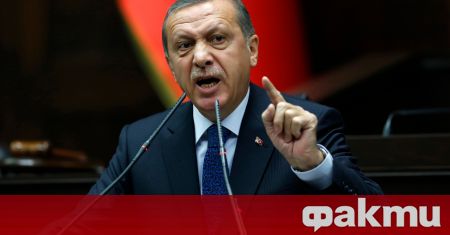FACTS publishes opinions with a wide range of perspectives to encourage constructive debate.
Mehmed Yumer’s comment:
From the establishment of the Republic of Turkey to the present day, the subject of the Ottoman past has always been an essential element of Turkish political thought.
Lately, it has even more enhanced features. Kemalist Turkey evaluates its Ottoman past mainly on two criteria: the annexation of new lands and the loss of lands. For Kemalist Turkey, the Ottoman Empire, which annexed new lands, was a model for a successful model, and periods of stagnation and loss of territories were due to the personal failures of the sultans who lost them. That’s why Kemalists don’t like failed sultans. And successful monarchs are woven into historical doctrine and studied in school as historical greats. Especially after the Islamists came to power, led by Recep Tayyip Erdogan, the Ottoman past has become a major theme in the last two decades, Islamists glorify the period of the rise of the empire and develop the thesis of “Islamic jihad”, “Islamic caliphate”, “superiority” Islam. ” While Islamists are seen as the direct descendants of the Ottomans, right-wing nationalists, who are now Erdogan’s coalition partner (conditionally speaking, the Pan-Turkists) see the Ottoman Empire as a kind of Turkish-Islamic state. According to this view, the Turkish Muslim empire played a decisive role in world affairs, had military superiority, and ruled vast territories.
Today, Erdogan’s Turkey is unhappy with the lands it owns. She is also dissatisfied with the fact that she is not a determining factor in world politics. And when Islamists ally with nationalists in power, these complexes kill out. Today, this notion of the Ottoman heritage is at the heart of the political thought of the Turkish rulers. These rulers created a New Turkey that relied on Turkish-Islamic fusion and became a destabilizing factor in both domestic and foreign policy. They want to be as strong as the Ottomans, to rule over vast lands like them, and to take revenge on the West. Therefore, I believe that the video address of the Turkish president, sent to the Tenth National Conference of the MRF last December, was more an expression of Recep Tayyip Erdogan’s understanding of his broad mental boundaries than a rejection of his ambition for influence and resignation to the leading role of MRF among the Turkish minority group in Bulgaria.
Erdogan will not completely give up his ambition to influence the Turkish minority community in our country, which he does not have at the moment. Part of the Muslim community in the Western Rhodopes respects him on the line of Islam, considering him a “great” leader in the Islamic world who behaves boldly and does not yield to the West. But for the most part, Bulgarian Turks have completely secular views, which is why the doctrine of Islamism, which is followed by Turkish President Erdogan, does not penetrate among them. These are fundamental differences that cannot be ironed out. Erdogan’s invitation to the Movement’s leaders is a clear message that he wants to mark his influence on the Turkish and Muslim communities in Bulgaria.
One of the main highlights in the Bulgarian media from the visit of the MRF delegation to Turkey were the words of Mr. Mustafa Karadayi, who spoke about the great-grandmother or motherland “anavatan”, about the assertion of the Turkish identity, about the Turkish minority group that remained in these lands after the collapse of the Ottoman Empire. All things that gently caress the ear of the Sultan of the Bosphorus. He said things he wanted to hear.
This is usually always the case – one thing is said here and another there. Interest shakes the face.
Mehmed Yumer is a journalist, foreign policy analyst with in-depth knowledge of Turkish and Middle Eastern socio-political life and publisher of the sites http://www.obzornews.bg and bakis.bg.
–


